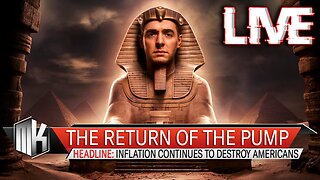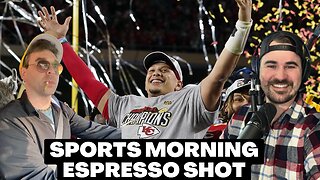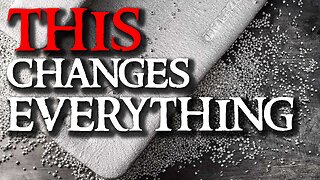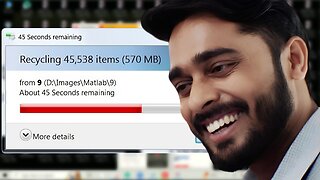Is a cash out refinance a way to generate passive income?
Good question.
No, a cash out refinance is not a way to generate passive income. When you do a cash out refinance on an asset you are in no way generating income.
However, if you had cash (which could have come from a cash out refinance) and then purchase a suitable passive income investment like corporate income bonds or being a limited partner in a large multifamily community that is passive income.
You have to in your mind think of it as if you have cash from somewhere and forget about where it was obtained and then examine investments that meet the definition of passive income.
So, let’s go to the example of the cash out refinance on an asset where you have say 100,000 from this activity. Now if you were to purchase bonds of a company like Alamo Mortgage Holdings, Ltd or Andesite Blue, Ltd these would be examples of passive income investments.
However, if you took that same 100,000 and started a restaurant with it, that is not passive income if you are involved with running and operating the restaurant.
In general doing cash out refinance, particularly when rates of inflation are higher is a good idea. Then, if you want passive income, you should select suitable passive income investments. But don’t confuse yourself where you start thinking that cash obtained from cash out refinance of an asset is passive income. It is cash. Until you purchase something with the cash you like a passive income investment you don’t have passive income.
High-yield (also referred to as "non-investment-grade" or "junk" bonds) refers to bonds rated Ba1/BB+ and lower.High-yield bond portfolios concentrate on lower-quality bonds, which are riskier than those of more financially stable companies. These portfolios generally offer higher yields than other types of portfolios, but they are also more vulnerable to economic and credit risk.
One mistake often made by investors is chasing high returns by purchasing these junk bonds. The problem is that in most cases they have little to no good collateral.
Collateral is very important when you purchase a bond. The mistake made is only looking at a bond’s rating and seeing it is a publicly traded company so it must be safe to purchase.
The bonds of the bankrupt American energy company Enron provides an excellent example.
For example, the Wall Street analysts maintained ``buy'' and ``strong buy'' ratings. Similarly, each of the three credit rating agencies maintained investment grade ratings until just four days before Enron declared bankruptcy.
The energy company's much-anticipated reorganization plan, said most creditors only received 14.4 cents to 18.3 cents on every dollar they are owed. The bankruptcy, one of the most expensive in history, had 20,000 creditors owed an estimated $67 billion.
So it is important when you decide to purchase bonds you take a good look at the collateral backing the bond. Many bond investors in Enron will tell you how they wish they had done that instead of just assuming it was a public company and a rating agency had given it a high rating.
If your goal is higher passive income the best way is to look at the bonds of companies that are not publicly traded (as they often pay higher returns) or to look at investing as a limited partner in a multifamily apartment community. But you need to focus on collateral backing the bond.
If you would like to learn more about investing for passive income, just register for my free weekly training at the link below:
https://www.meetup.com/benjamin-z-millers-investor-networking-group/
I hope that helps and good luck with your investing!
Benjamin Z Miller
www.benjaminzmiller.com
Benjamin Z Miller
ben@benjaminzmiller.com
1-817-203-4160
www.benjaminzmiller.com
https://www.linkedin.com/in/benmillersells/
https://twitter.com/BenjaminZMiller
-
 1:15:07
1:15:07
Graham Allen
4 hours ago🚨CONFIRMED: Vivek WILL Be At Trumps Debate! Is He The VP?! + AOCs Squad CRUMBLES!
35.3K91 -
 2:14:27
2:14:27
Matt Kohrs
14 hours agoMarkets Recover, Nvidia Pumps & Trading $1M Journey || The MK Show
29K5 -
 LIVE
LIVE
Wendy Bell Radio
6 hours agoDemocrats Go Down In Flames
8,140 watching -
 1:31:20
1:31:20
Game On!
12 hours agoChiefs looking to make history with 3 peat! | Sports Morning Espresso Shot
21.7K2 -
 5:00
5:00
ThinkStory
2 days agoHOUSE OF THE DRAGON Season 2 Episode 3 Preview Breakdown!
45.7K5 -
 13:45
13:45
Silver Dragons
1 day agoHUGE Silver News Dump - LIES ABOUT SILVER EXPOSED
38.8K7 -
 24:22
24:22
ThatStarWarsGirl
1 day agoI finally watched Disney Star Wars "The Acolyte"....
43.2K25 -
 13:03
13:03
NC Dirt Hunter
2 days agoCivil War Metal Detecting with the Xp Deus 2 metal detector.
39.5K3 -
 15:01
15:01
ScammerRevolts
1 day agoAngry Scammer Laughs After Getting His Files Deleted
29.7K16 -
 42:15
42:15
Andy Frisella
1 day agoThis Is The Price Of Reaching Your Goals - Ep 731 Q&AF
42K9